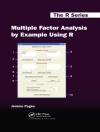The
Second Edition of the cutting edge work, The
Handbook of Humanistic Psychology, by Kirk J. Schneider, J. Fraser Pierson and James F. T. Bugental, represents the very latest scholarship in the field of humanistic psychology and psychotherapy. Set against trends inclined toward psychological standardization and medicalization, the handbook offers a rich tapestry of reflection by the leading person-centered scholars of our time. Their range in topics is far-reaching—from the historical, theoretical and methodological, to the spiritual, psychotherapeutic and multicultural.
Spis treści
Foreword – E. Mark Stern
Foreword to the First Edition – John Vasconcellos
Preface to the Second Edition – Kirk Schneider, Fraser Pierson
Introduction to the Second Edition – Kirk Schneider, Fraser Pierson
Chapt. 1, Roots and Geneology of Humanistic Psychology – Donald Moss
Chapt. 2. Humanistic Psychology at the Crossroads – Eugene Taylor, Frederick Martin
Chapt.3, Humanistic Psychology and Women – Ilene Serlin, Eleanor Criswell
Chapt. 4, Humanistic Psychology and Multiculturalism – Louis Hoffman, Heatherlyn Cleare-Hoffman
Chapt. 5, The Search for Psyche – Amedeo Giorgi
Chapt. 6, Rediscovering Awe: A New Front in Humanistic Psychology, Psychotherapy, and Society – Kirk Schneider
Chapt. 7, The Person as Moral Agent – Thomas Szasz
Chapt. 8, The Self and Humanistic Psychology – Donald Polkinghorne
Chapt. 9, Toward a Sustainable Myth of Self: An Existential Response to the Post-modern Condition – Louis Hoffman, Sharon Stewart, Lisa Meeks
Chapt. 10, Humanistic Psychology and Ecology – Marc Pilisuk
Chapt. 11, Humanistic Psychology and Peace – Marc Pilisuk
Chapt. 12, Two Noble Insurgencies: Creativity and Humanistic Psychology – Ruth Richards
Chapt. 13, Becoming Authentic: An Existential-Humanistic Approach to Reading Literature – Tom Greening
Chapt. 14 Fellini, Fred, and Ginger: Imagology and the Postmodern World – Ed Mendelowitz
Chapt. 15, Humanistic Neuropsychology: The Implications of Neurophenomenology for Psychology – Brent Robbins, Susan Gordon
Chapt. 16, Humanistic Eldercare: Toward a New Conceptual Framework for Aging – Nader Shabahangi
Chapt. 17, Toward a Humanistic-Cultural Model of Development – Eugene De Robertis
Chapt. 18, Cognitive Science and Technological Culture: A Humanistic Response – Christopher Aanstoos
Chapt. 19, Humanistic Psychology and the Qualitative Research Tradition – Frederick Wertz
Chapt. 20, Introduction to Phenomenological Research – Scott Churchill
Chapt. 21, The Grounded Theory Method and Humanistic Psychology – David Rennie, Rinat Nissam
Chapt. 22, Heuristic Research – Clark Moustakas
Chapt. 23, Narrative Research and Humanism – Ruth Josselson
Chapt. 24, Research Methodology in the light of Postmodernity – Stanley Krippner
Chapt. 25, Hermeneutic Single-Case Efficacy Design: An Overview – Robert Elliot
Chapt. 26, The Renewal of Humanism in Psychotherapy: A Roundtable Discussion – Kirk Schneider
Ch. 26 Intro – Alfried Langle
Ch. 26 European therapy – Alfried Langle, Jurgen Kriz
Ch. 26 Multicultural therapy – Lillian Comas-Diaz
Ch. 26 Psychoanalysis – Robert Stolorow
Ch. 26 Research – Bruce Wampold
Ch. 26 Research and Training – David Elkins
Ch. 26 ACT/Cognitive-Behavioral Therapy – Steven Hayes
Ch. 26 Summary and Conclusion – Kirk Schneider, Alfried Langle
Chapt. 27, Frames, Attitudes, and Skills of an Existential-Humanistic Psychotherapist – Bob Edelstein
Chapt. 28, Therapy as an I-Thou Encounter – Maurice Friedman
Chapt. 29, The Person of the Therapist: One Therapist’s Journey to Relationship – Barry Duncan
Chapt. 30, Existential Cross-Cultural Counseling: The Courage to be an Existential Counselor – Clemont Vontress, Lawrence Epp
Chapt. 31, Treating Madness Without Hospitals – Loren Mosher
Chapt. 32 Awe Comes Shaking Out of the Bones – E. Mark Stern
Chapt. 33, If You Are Ready to Undergo These Awe-full Moments – Al Mahrer
Chapt. 34, Constructivist Approaches to Therapy – Larry Leitner
Chapt. 35, A Humanistic Perspective on Bereavement – Myrtle Heery
Chapt. 36, Existential Analysis and Humanistic Psychotherapy – John Rowan
Chapt. 36, A Reply to John Rowan – Ernesto Spinell
Chapt. 37, Humanistic psychology’s transformative role in a threatened world – Maureen O’Hara
Chapt. 38, Humanistic-Experiential Therapies in the Era of Managed Care – Arthur Bohart
Chapt. 39, An Existential-Integrative Approach to Experiential Liberation – Kirk Schneider
Chapt. 40, Collaborative Exploration as an Approach to Personality Assessment – Connie Fishcer
Chapt. 41, Cultivating Psychotherapeutic Artistry: Model Existential-Humanistic Training Programs – J. Pierson, Orah Krug, Troy Piwowarski
Chapt. 42, Humanistic Psychology, Mind/Body Medicine, and Whole Person Healthcare – Eleanor Criswell, Ilene Serlin
Chapt. 43, Romantic Love as Path
Chapt. 44, Beyond Religion – David Elkins
Chapt. 45, Authenticity, Conventionality, and Angst: Existential and Transpersonal Perspectives – Roger Walsh
Chapt. 45 A Reply to Roger Walsh
Chapt. 46, Humanistic Psychology and Social Action – Donadrian Rice
Chapt. 47, Humanistic Psychology in the Workplace – Alfonso Montuori, Ronald Pursor
EPILOGUE: CLOSING STATEMENTS – Kirk Schneider, J. Pierson, James Bugental
O autorze
James T. F. Bugental, Ph D (1915-2008), was a professor emeritus and clinical faculty member at Stanford Medical School, and an emeritus and adjunct faculty member at Saybrook Graduate School and Research Center. He was a major spokesperson for the humanistic perspective since its coalescence into an influential movement in the field of psychology more than fifty years ago. Bugental served on the editorial review boards of the Journal of Humanistic Psychology, the Journal of Transpersonal Psychology, The Humanistic Psychologist, and the American Journal of Psychotherapy. He authored numerous major publications, including The Search for Authenticity, The Search for Existential Identity, Psychotherapy Isn’t What You Think, The Art of the Psychotherapist, and Psychotherapy and Process: The Fundamentals of an Existential-Humanistic Approach. Bugental also published more than eighty articles in professional and technical journals, and contributed twenty-five original chapters in books edited by others. Translations of his work can be found in French, Finnish, Spanish, German, Dutch, Russian, Italian, Chinese, and Japanese.












